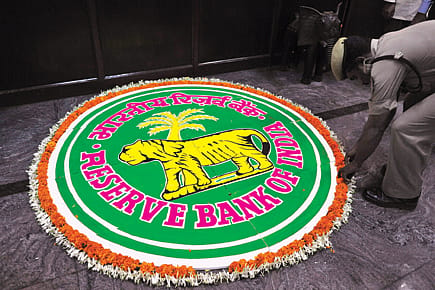The Third Wave

The RBI raises several issues ahead of the third round of licensing for new private banks. But there are no clear answers yet.
The big debate has begun. The Reserve Bank of India (RBI) recently made public a discussion paper on the entry of new banks in the private sector, one of the most keenly awaited subjects in financial circles. The paper, it must be said, is a mature one in that it throws up several options for every point of discussion, be it capital adequacy, promoters' shareholding, foreign shareholding, eligibility criteria, the thorny issue of industrial houses setting up banks, and whether non-banking financial companies (NBFCs) should convert themselves into banks or set up new ones.
The paper goes into the pros and cons of each of these points, and throws these up for debate and discussion, in what is a refreshing approach to policymaking.
One aspect is clear, though: the rationale for seeking to allow new private banks into the market is—in keeping with the Government's overall policy stance—is financial inclusion. The paper says: 'Though the Indian financial system has made impressive strides in resource mobilisation, geographical and functional reach, financial viability, profitability and competitiveness, vast segments of the population, especially the underprivileged sections of the society, have still no access to formal banking services.' The RBI wants more banks so that they can reach unbanked areas and bring more people into the official financial system.
Openomics 2026: Continuity and Conviction
06 Feb 2026 - Vol 04 | Issue 57
The performance state at its peak
Elaborating on its experience with private banks since 1993, when ten new banks were given licences, followed by another two in 2001, the RBI has pointed out that overall, the experience has been mixed. Only banks where there was financial sector experience, 'trustworthy people' and financial resources could withstand the rigours of banking, while even those promoted by banking professionals either failed, merged with others, or saw muted growth.
Among the key points of debate, the most important is capital adequacy. Should a bank have a low threshold of capital to let more people committed to financial inclusion come in? Or should the threshold be high at, say, Rs 1,000 crore, so that only the serious and financially strong can enter the fray? There are arguments on both sides. A low threshold may fail to stop non-serious players from coming in, while a high threshold may lead to banks only focusing on high-value transactions and clients, defeating the very objective of financial inclusion.
The other big discussion point is the extent of promoter shareholding. Should the regime of asking promoters to bring in 40 per cent stake initially and then paring it over five years continue? Or should they be allowed a higher level of, say, 20 per cent? Another suggestion is to allow them to retain their initial 40 per cent holding. There are pros and cons for each of these three scenarios, but the basic point is whether promoters would be keen to set up banks if the effective shareholding eventually falls to a level they consider insignificant for effective control of a bank. On the other hand, concentrated shareholding in banks has been found to have gone against depositors' interests in many cases in India.
The most controversial point, of course, is the one on allowing industrial and business houses to promote banks. While business houses are typically where managerial expertise resides, the fear would be that some among them would tend to siphon off funds to their own operations and milk the banks. Another concern is that such business houses may not be eager about financial inclusion either. The RBI says that even if business houses with financial sector experience are allowed, they may pose a threat to financial stability because of excessive concentration of money power.
There are no clear answers yet to these tricky questions. But by finally throwing open the doors to a debate on the subject, the RBI has ensured that the next round of policy decisions on new private sector banks will be taken after enough engagement with the public.
These are the author's personal views. He can be reached at majumdar.sourav@gmail.com
